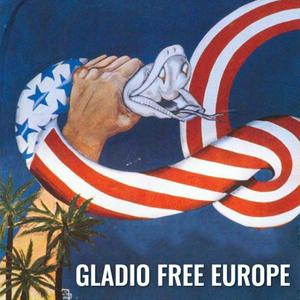Support us on Patreon
---
Across the world, over two billion people believe that a human being is God. This confession of faith lies at the very heart of Christianity, a movement that exalts the life of a single individual far beyond that of any other world religion. But who was this man? What do we know about Jesus of Nazareth?
This epsiode of Gladio Free Europe explores the historical question and historical personage of Jesus, an apocalyptic Jewish preacher from 1st-Century Galilee who was crucified by the Romans. Though this preacher is not attested in any contemporary documentation, his life and his death would have consequences more far-reaching than perhaps any other human up to this point.
Liam, Sam, and Jackson chart the past three centuries of rationalist inquiry into the existence of Jesus, beginning with Enlightenment firebrands like Hermann Reimarup, moving through the development of mythicist speculation by figures such as Bruno Bauer and Arthur Drews, and the development of contemporary New Testament scholarship as represented by figures such as Paula Fredriksen, John Meier, and Bart Ehrman.
Effectively all historians today agree that Jesus existed. Beyond this, there is not much certainty. Different scholars have different criteria for assessing the historical reliability of evidence on Jesus, predominately the Christian Gospels and the writings of Paul of Tarsus, but also roughly contemporaneous Greek and Roman sources, such as the great Greek Jewish historian Josephus. Additional insights can be gleaned through research into the Jewish religion of Jesus, the cultural and archaeological landscape of Ancient Palestine, and broader developments in Greco-Roman philosophy and spirituality.
In addition to sharing contemporary academic findings concerning this peculiar individual, Liam, Sam, and Jackson share their own thoughts on the significance of the life and afterlife of Jesus. The earliest history of Christianity, as documented by texts such as the Acts of the Apostles, is enormously relevant to reconstructing the story of its founder. In addition, the spread of Christianity from an underground sect to the largest religious tradition in human history presents striking parallels with contemporary social movements. The Quest for the Historical Jesus, as so-described by Albert Schweitzer in 1906, thus holds profound consequences not only to Christians, but to anyone seeking a deeper understanding of the human capacity for passion and perseverance.


